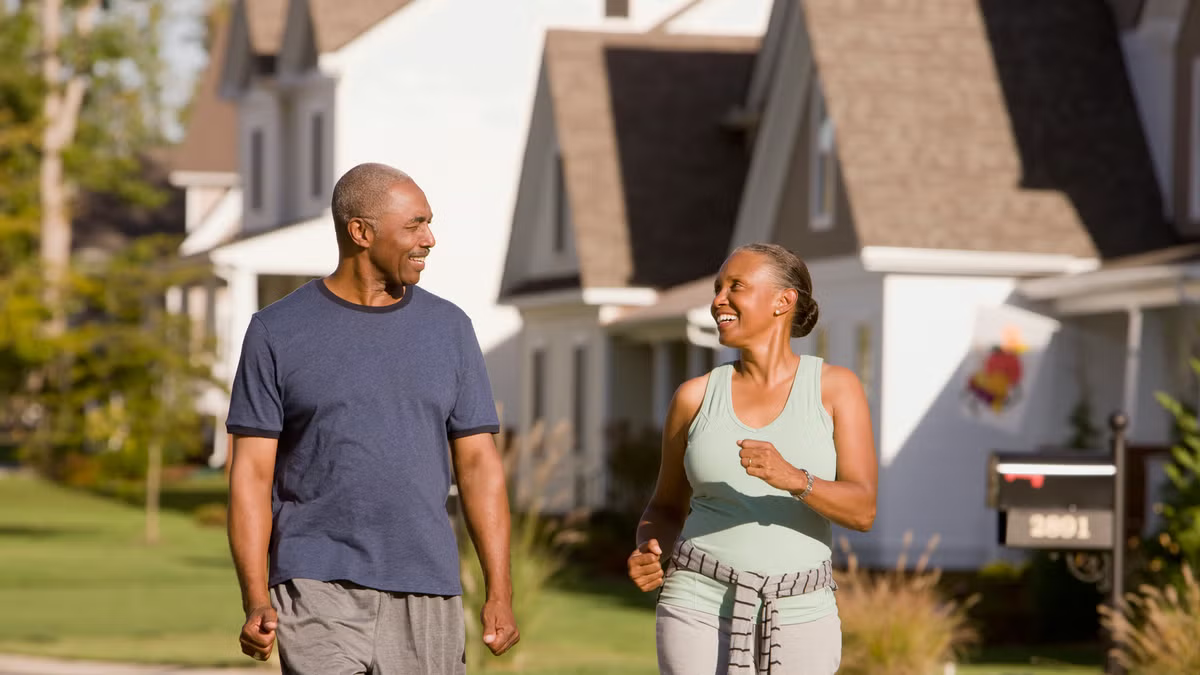5 Exercises to Naturally Treat Your Anxiety and Depression
Exercise isn't just for your body. It's for your mental health, too.
Exercise is the ultimate wellness tool. It is important for keeping our bodies healthy and can work wonders for your mind. Regular exercise can help boost your mood and relieve depression and anxiety symptoms. It also can serve as an outlet for your attention and stress.
Why should you exercise for mental health?
Exercise makes you feel good about yourself. When I say exercise, I don't only mean hitting the gym and pumping iron. Exercise is anything that gets you moving. You don't have to leave your house to boost your mental wellness with physical activity.
Benefits of exercise on your mental health:
- Improved body image
- Better mood
- Lower depression and anxiety symptoms
- Reduced symptoms of ADHD
- Higher self-esteem
- Sense of accomplishment
- Increased self-confidence
- Sense of pride
No one type of exercise will unlock good mental health. This means you have the flexibility to find something that fits your life. There is no bar to meet -- any amount of movement counts. However, researchers note that more exercise will increase the payoff.
Exercises to boost your mental health
Walking
For many people, walking is their go-to mental health exercise. It's one of my favorites since it's relatively low-impact, and you can do it anywhere. Walking can help ease stress, relieve anxiety symptoms and promote positive thoughts. If you want the best results, walk outside and soak in the greenery. Nature walks have been found to reduce anxiety.
It doesn't have to be a long walk; studies show that as little as 15 minutes of walking can decrease your risk of becoming depressed by 26%.
Running
If you're looking for a more intense form of exercise for mental health, try running. Our brains flood with endorphins that boost our mood when we run. It's what people call a "runner's high." Studies have found outdoor exercise to be an effective treatment alternative to antidepressants.
Consistent running can also make it easier to fall asleep and increase sleep quality, which is essential for lowering anxiety and depression symptoms.
Strength training
Try strength training if you'd like the added benefit of building muscle while healing your mental health. It can lower the risk of developing depression or relieve existing symptoms. You also get the satisfaction that comes with meeting strength goals.
Strength training doesn't have to mean going to the gym and lifting weights. You can easily build strength at home with free weights, resistance bands and your body weight.
Yoga
Yoga not only helps get your body moving but gives you a chance to reflect and meditate. That's why we think it's one of the best exercises you can do to boost your mental health. Focusing on your breathing can eliminate bad mental health habits like thought loops and negative thinking. The controlled breathing activates your parasympathetic nervous system, which puts you in a state of relaxation. It does this by lowering your heart rate and blood pressure.
Dancing
Dancing is another exercise option that can significantly reduce anxiety. It can also increase self-esteem. Like yoga, you can choose the type of dancing you'll do -- there are benefits to all of them. If you're not a ballet dancer, try tango or free-flow movement.
Practical tips to start exercising for mental health
Getting started is the hardest point. Here are some strategies to make exercise a staple in your routine.
- Choose an activity you enjoy: Try not to think about exercise as something you have to do. Instead, view it as another tool you use on your wellness journey.
- Set realistic goals: Going too far with exercise can negatively impact your mental health, especially if you set goals for yourself that you can't reasonably meet. Set small goals that you can build on as you grow. Remember, you have nothing to prove to anyone other than yourself.
- Reward yourself: Rewarding yourself for completing a workout is a great idea to make it a habit. It doesn't have to be anything big -- maybe an extra episode of your favorite show or a bubble bath.
- Make it a social thing: If you're someone who thrives when you have accountability, make your exercise a social activity with friends.
Exercise is an excellent tool to manage the everyday symptoms of mental health conditions. However, exercise is not intended to replace therapy and medication for those who rely on them to function.
Credit Taylor Leamey "5 Exercises to Naturally Treat Your Anxiety and Depression",
https://www.cnet.com/health/mental/5-exercises-to-naturally-treat-your-anxiety-and-depression/
















